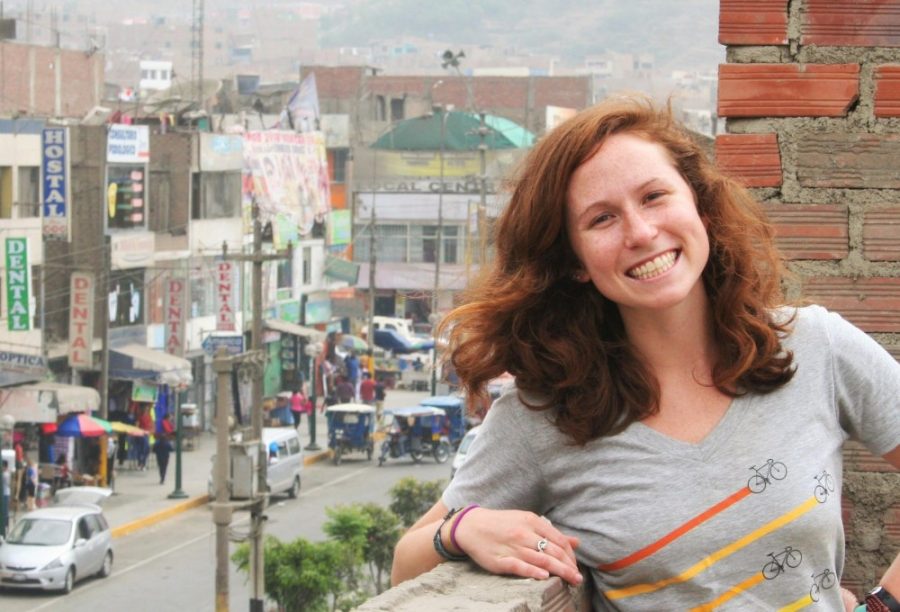Sarah Renkert, a Fulbright-Hays Doctoral Dissertation Research Abroad fellowship winner and graduate student in the School of Anthropology at the University of Arizona, knows a thing or two about successfully receiving research funding.
Renkert is a Ph.D. student and said she has not spent any of her own money on her research thus far.
“I’ve gotten over $40,000 for my Ph.D. research, and that doesn’t count all of the grants I’ve gotten while I’ve been here,” Renkert said.
RELATED: Student Spotlight: Health and Human Values Honors College minor cohort presents semester-long thesis
She had some tips to share with other graduate students on how to acquire funding for research.
Renkert’s research takes place in a low-income neighborhood in Lima, Peru, where she studies communal kitchens called “comedores populares,” one of Lima’s “primary forms of food aid,” Renkert said.
In the comedores populares, groups of mothers from Lima’s lower-income neighborhoods organize and cook food for their neighbors, which they sell at an affordable price.
“A lot of these kitchens are starting to close down, and so I’m looking at what’s kind of going on, and why are the ones that are still open still open? What’s happening? Why are others closing down, and what’s been the impact in areas that they have closed down?” Renkert said about her research.
Renkert’s first tip was: “Pre-dissertation research is key.” While she said her advice is mostly for Ph.D. students doing research, it can also apply to undergraduates that have an interest in doing fieldwork with people.
She said she made sure to build connections with the people involved in her study. “How that really benefited me in the grant-writing process was that I was able to demonstrate the feasibility of my research,” Renkert said.
Renkert’s second tip was to find collaborators early. She claimed that having pre-existing connections in the country in which one is studying in is a significant advantage in earning a grant.
Renkert’s previous connections came from working in Peru in a non-profit neighborhood for a year and a half.
“The other thing you really need to do to have a competitive grant is you usually should have a university connection,” she said. “So show that there’s a university in the host country that is willing to work with you and support you.”
She emailed a professor at a public university in Peru before her research, and the professor was willing to work with Renkert on her project.
“I’m pretty confident that helped in my application,” Renkert said.
The third tip from Renkert was to participate in the Graduate College’s Summer Support Fellowship Program. The program gives three deadlines throughout the summer, and the student is supposed to submit a grant or rewrite a grant by those deadlines. The program includes someone to give thorough feedback on the submitted grants, which Renkert said was “extremely helpful.”
The fourth tip from Renkert was to “get one grant out the door.” What Renkert means by this is that by writing one thorough grant, she was able to use it as a model for her other grants.
“Just getting my words out there, getting my ideas out there, getting both my method and theoretical mark out there, made writing everything else so much easier,” Renkert said.
Renkert’s fifth tip was that if the research requires an institutional review board, start the process as soon as possible.
This “basically means you’re working with people. Like, your study in some way involves living, breathing human beings,” Renkert said. Review boards exist to make sure the research is ethical. “It protects the research participants, but it also protects you.”
RELATED: New discoveries on the horizon thanks to grad student’s black hole research
Speaking from a graduate student’s perspective, Renkert thought that UA makes it hard for students to get grants on multiple levels. Finding time is what she finds the most challenging about writing a grant, citing classwork and jobs as taking up much of student’s time.
Perseverance in the grant-writing process has proved key, according to Renkert.
“One of the things I’ll say is it just takes work and it takes being willing to fail. I’ve been turned down by tons of grants, you just have to keep working on them,” Renkert said.
Follow Shannon Sneath on Twitter








